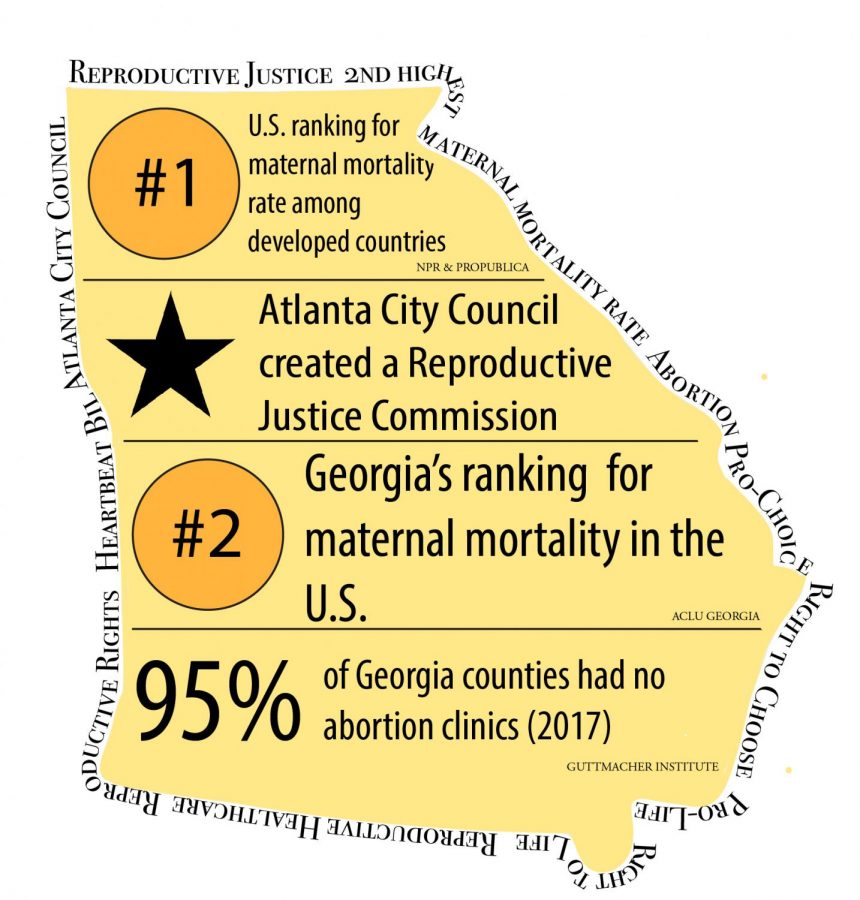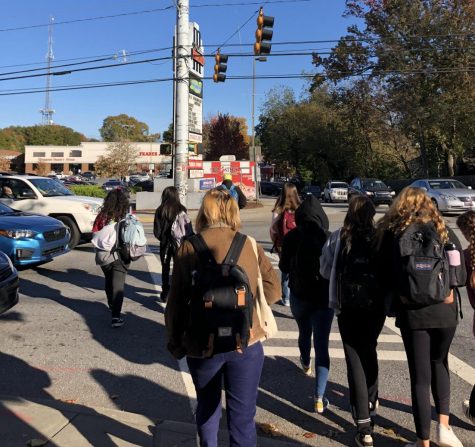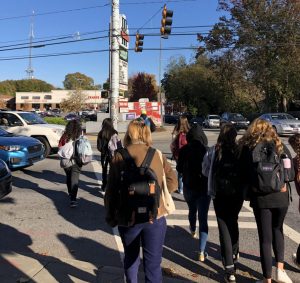Atlanta Reproductive Justice Commission highlights increasing role of city governments
Georgia ranks second in the U.S. for maternal mortality, according to the Georgia ACLU, and 95 percent of the state’s counties had no abortion clinics in 2017, according to the Guttmacher Institute.
December 6, 2019
The Atlanta City Council has created the Reproductive Justice Commission to advise city leaders on issues regarding reproductive health and rights.
In the midst of state and nationwide debates over reproductive rights, cities’ focuses on hot topics such as reproductive justice are increasing.
“I think it is important in Georgia, in the absence of the state protecting reproductive healthcare access … that cities step up in that void and lead on it to the extent they can,” said Amir Farokhi, the city councilman who proposed the commission.
The commission is composed of nine appointees and was formed in response to Georgia House Bill 481, also known as the “Heartbeat Bill.” If enacted, the bill would illegalize abortion after a fetal heartbeat can be detected.
Georgia’s legislature, which wrote the bill, is majority Republican while Atlanta’s City Council is majority Democratic. This political difference is evident in the language of the commission’s resolution, which says “access to comprehensive sexual and reproductive healthcare, including abortion, is a basic human right that should be steadfastly afforded to all.”
The commission will be responsible for proactively advising the city on how to increase access to reproductive healthcare and reproductive rights in the wake of HB-481.
Dr. Dabney P. Evans, an associate professor in the Hubert Department of Public Health at Emory University, works on sexual and reproductive health and rights in the U.S. and globally. She thinks the commission is a step in the right direction toward addressing issues such as Georgia’s maternal mortality rate (which is the second highest in the nation, after Louisiana) and access to sexual education, contraception and abortion.
“The state legislature tried to burn access to sexual reproductive health services to the ground,” said Evans. “Appropriate to the city symbol of the Pheonix, the commission is allowing city government to rise up from the ashes.”
Although the commission had the full support of councilmembers, not everyone supports it.
“I believe that God didn’t make any mistakes when he chose someone to be born,” said a Grady student who prefers to remain anonymous. “I feel like having a committee that is there to ensure that babies die is against my beliefs.”
The source believes that the city should help make birth control and contraception more accessible to teenagers.
“If they don’t have a child in the first place there is no reason for an abortion,” the source said.
They also believe that work must be done to change the stigma that surrounds teenage mothers and encourage policies to help support mothers’ financially.
Because city governments do not have jurisdiction over criminal law, the new Reproductive Justice Commission intends to use power the city does have to offset the bill.
For example, Farokhi says the commission may make recommendations to build new reproductive healthcare clinics and work with MARTA to make sure transit goes to such clinics.
“When we think about larger organs of government, they tend to be farther and farther away from where people’s lives are,” Evans said. “City government is a lot closer to the way people feel about these issues … and will have the opportunity for community members to come forward and share their experiences.”
The commission will also conduct policy research. Evans says that academics and all citizens can play an important role in formulating new policies.
Farokhi’s idea is that cities can create momentum for changes to state and national policies and the City of Atlanta has an obligation to be part of this momentum.
“Atlanta, as the capital city of the state and one of the leading cities in the south, has an obligation to look out for the healthcare of people who live in and visit the city,” Farokhi said.


















